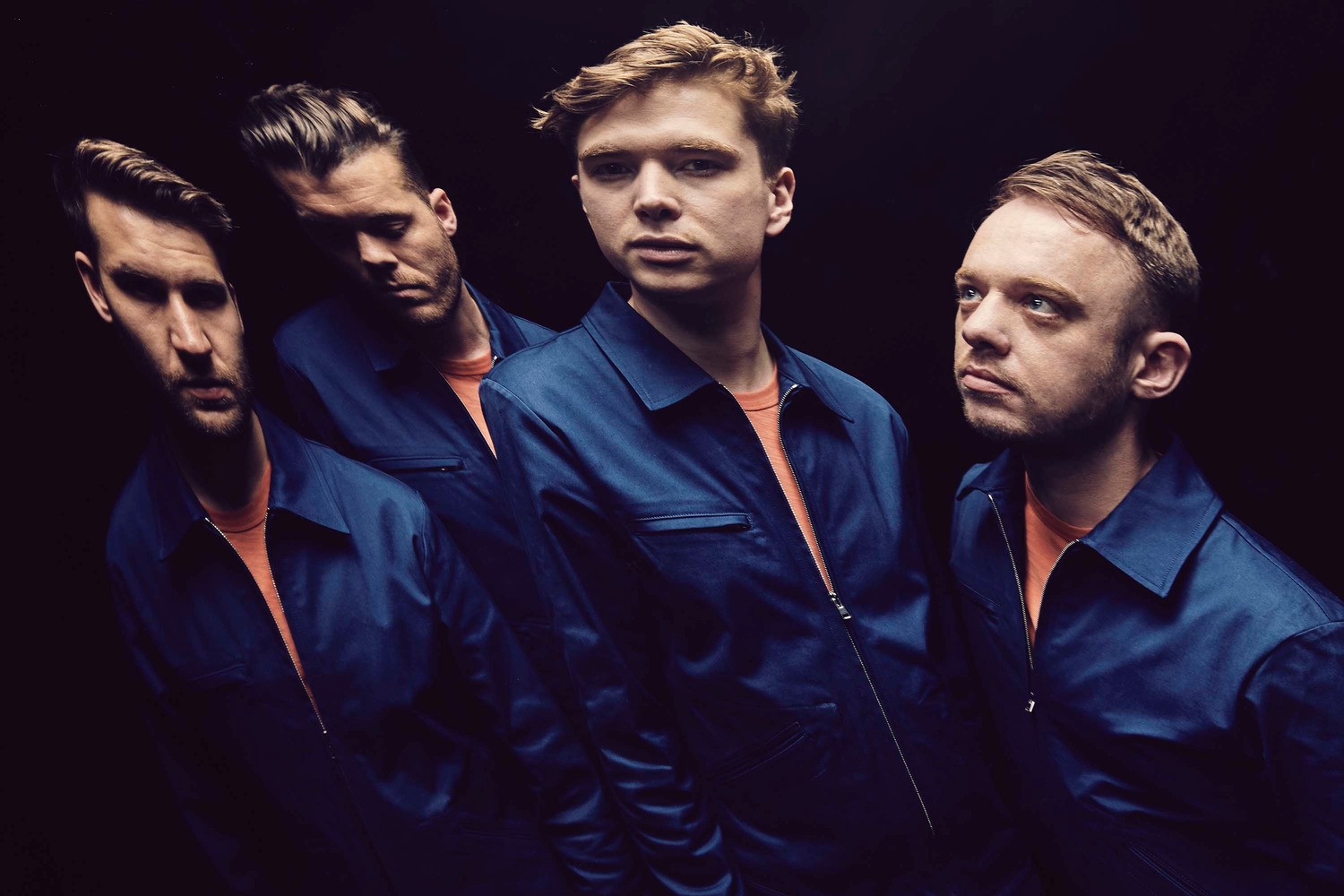
Interview Everything Everything discuss ‘A Fever Dream’: “It was more about collective shock”
Frontman Jonathan Higgs gives us an insight into their Hyundai Mercury Prize-shortlisted fourth album.
Everything Everything are not necessarily a band known for offering up a comfortable ride. Throughout their career so far, the four-piece have found themselves bucking the norm and indulging in extremes, whether that be the playful falsetto of frontman Jonathan Higgs’ vocals, or the themes which have spanned their four albums so far.
On their third album ‘Get To Heaven’, they felt to finally hit their stride; the eccentric and intricate pop that they created dosed came tinged with the panic of the outside world, Higgs’ lyrics delving into the dark depths of terrorism and global tensions. It’s with their latest offering – 2017’s ‘A Fever Dream’ – that they continue to build in a similar vein, this time exploring how the huge political and social shifts of our times are affecting our every day lives as a whole.
Doubling as their second record to be shortlisted for the Hyundai Mercury Prize, it’s an album that encapsulates the fear of our times while feeling like their most accomplished and powerful so far.
Ahead of the 2018 Hyundai Mercury Prize award show this month, we spoke to Higgs to discuss the band’s headspace and how that went on to inform their fourth record.
Ahead
of the making of ‘A Fever Dream’, what sort of headspace did you find
yourselves in?
We certainly felt quite drained by ‘Get To Heaven’. We had difficult times when we were making it; certainly my headspace while I was writing the lyrics for ‘Get To Heaven’ was pretty fucked up. I had gotten far too into following ISIS and following rolling news, and getting very entrenched in the woes of the world in a big way. It all came out on 'Get To Heaven', and afterwards, we were like, 'Fucking hell, we can't do this kind of thing every time.' We were super emotionally invested. 'A Fever Dream’ was more about the collective shock that everyone felt when Brexit happened, and Trump got in, and the sense that everything we thought was safe and a done deal was suddenly completely blown out of the water. [The realisation] it wasn't the world that we thought it was, in all of our comfortable lives, it was like, 'Oh shit, actually, we're the minority suddenly and we're not very popular'. That was my main feeling. That was something I wanted to get across: that sense of bewilderment, and the surreal, sort of dream-like state that I felt waking up every day and reading the papers, wondering what the fuck is going on. It's also [about] the fragmentation of society and feeling like our neighbours all hate each other, and suspecting people for how they might have voted, or who they might be. There's suddenly an either or, us or them culture that appeared almost overnight and I can't really see it going anywhere for a long time.
And
now, a year on since the release of the album, it still doesn’t feel
as though those feelings are going anywhere.
It feels like no one has gotten close to solving it. Even the little droplets of hope that we had have turned into a different kind of monster now; it's like, 'Oh shit, not even these guys can help us out.' The people who are supposed to be in charge are getting worse; yeah, it's absolutely insane.
"I'd rather look at the effect that all of that chaos has on our little personal lives, and how it feels to look at your neighbour's garden and think, 'They seem the same as me, but are they?'."
— Jonathan Higgs
So,
while ‘Get To Heaven’ very much saw you entrenched in the constant bombardment of
rolling news, would you say this record deals more with the human reaction to all of that, and
how we’ve been forced to process all of these hyper-real incidents?
Yeah, I think I went about as far as I could with getting into the heads of terrorists and trying to, almost, be on the front line as it were, with 'Get To Heaven'. With this record, I felt like I didn't want to actually talk about Brexit, or actually talk about Trump – it feels like everyone's doing that and it's incredibly boring, it's just another fucking opinion that people don't want to hear. So, I [decided] I'd rather look at the effect that all of that chaos has on our little personal lives, and how it feels to look at your neighbour's garden and think, 'They seem the same as me, but are they?'. Rather than the globe-trotting, expansive stuff that I was looking at before, I wanted to talk about how it feels to be alive now; how it feels to see people writing all of this horrible stuff on the internet, or being trolled every day. That seems much more how people were experiencing it in 2017 than the kind crazy stuff.
It
feels as though it’s becoming the new norm.
It's like Godzilla is destroying a city really far away, and you know it's there but you can't see it and the effects of it are delayed, and there's this wave is coming, this wave of the Far Right. Maybe it's all going to hell, and there's going to be a world war and every day, it's coming another step [closer]. That's another big theme of the album; we open the album with a reference to 'Night of the Long Knives', and me saying 'It's coming'. That's the warning klaxon, but there's also a lot of stuff in there about how a lot of the people that we're afraid of are just absolute morons, and how you shouldn't be afraid of them, but if you're not careful, morons will be in power.
You’re
also tackling these subjects as a band based in Manchester, which is
geographically very much in the middle of a country that’s torn into
two very different political halves.
I think it is unique spot to be in. I mean, they call it the North here but I don't think it is at all, so this is the Midlands in my head. It's funny because you can't live everywhere and you can't know everyone. People do just kind of get an illusion and you assume everyone is the same as you, and thinks the same as you – there's another line on our post-album EP, on a song called 'Breadwinner', I say 'And you thought it was your world', and I think everyone thought this was their own world. Suddenly, we realised it's not actually.
And
that also ties back into the idea of being in an echo chamber, which
is fuelled by our use of social media. We seem to have been lulled
into believing that society all think and feel the same but these
events are forcing us to acknowledge that not everyone is a liberal.
No, exactly, they're not. And that doesn't just mean that people who aren't liberal are any particular other thing; there are people of all walks of life who are not liberal and never have been, but it can be a shock to some people. It was a shock to me! Why wouldn't it be? I'm used to my media being quite left-wing, and certainly with social media, you can control what media is fed to you, more so than ever.
Returning
to the album itself, you’ve said that with this record, you worked
much more collaboratively with Alex [Robertshaw, guitars] when it
came to the writing. How was that process for you?
It was good. I'm sure Alex found it more difficult than me, because he was doing most of the donkey work, and writing a lot of music, then I would swan in at the end and add a top line on it. From my point of view, it was an amazing way to work, because sometimes he would create entire songs, or we would sit together. Every time there was a decision, one of us would make it. That was cool, because when you're by yourself, you tend to take the same road every time, because it's what you really want. You just end up making the same thing. But he and I do have different tastes, which is essential really and while we agree on an awful lot as well, it was nice to have another entity to bounce off and create things. I can't imagine things not being like that.
Sometimes
having that push and pull can be really positive.
Definitely, I think when we're at our most stretched and most stressed is when we make the best art. That's certainly been the case in our band: [when we've] been against the wall, thinking we don't want to do the band anymore, it's then like, 'but here's the best song we've ever done'. When you're comfortable, you tend to just make very safe art, I think.
"We've been very lucky with our career in many ways, but we've also tried to keep our heads about the size of band we are, and keep things growing slowly."
— Jonathan Higgs
In
terms of musicality, this album also sees you continue to build upon
the more ‘pop’ direction that ‘Get To Heaven’ took, but it seems to
have also been honed so that it feels darker, and continues to be a
departure.
We've always considered ourselves to be a pop band. I think we got a little too into our slower, mournful mode on the second record ['Arc']. The first one ['Man Alive'], well, was weird, but the second one had a bit too much of the slow stuff, then we got to the third one and said we would have no slow songs on it, because we had gotten so bored of playing them live. 'Get To Heaven' was literally us having ten, eleven songs that were all up-beat and high energy. What was it we said about them? 'More riff riff, less sniff sniff.' So, when we got to the fourth one, we realised we had enjoyed making and playing the last one so much that we didn't want to change the format too much. Alex also had this infatuation with early Warp Records output, and had all these new synths that he wanted to get involved, and a lot of that influence came into the pop stuff and really darkened the tone. A lot of the scales and modes he was writing in weren't bright, and the dark synths [add] to the general uncomfortableness of the record, even though it can be upbeat. There's songs like 'Desire', which even have a glam beat. It's a cooler record than 'Get To Heaven' I think, and I personally struggle to write cool music. I can write really silly music, or really extreme music but I find it hard to be cool, so Alex took the lead on a lot of the singles.
You
were first shortlisted for the Hyundai Mercury Prize for your debut,
so it must feel great to have been shortlisted again for this latest
album; that also feels somewhat indicative of your career so far –
it’s been a slow and steady rise for you as a band.
We've been very lucky with our career in many ways, but we've also tried to keep our heads about the size of band we are, and keep things growing slowly, and make sure that the fans we pick up are into it for the right reasons. We've seen bands have a lot of success on their first record – obviously you can't deny people enjoying your first record – but we've seen it blow up and then die away dozens of times. In many ways, we've thanked our lucky stars we've not been a band tied to our first record; thankfully, all our tours have gotten bigger and bigger as we've gone on, and the fans we have are really dedicated and into us for the long haul. We've been lucky to gain those kinds of fans.
Everything Everything have been shortlisted for the 2018 Hyundai Mercury Prize. For more information on this year’s Prize, head to mercuryprize.hyundai.co.uk.
Brought to you as part of our media partnership with Hyundai.
Records, etc at

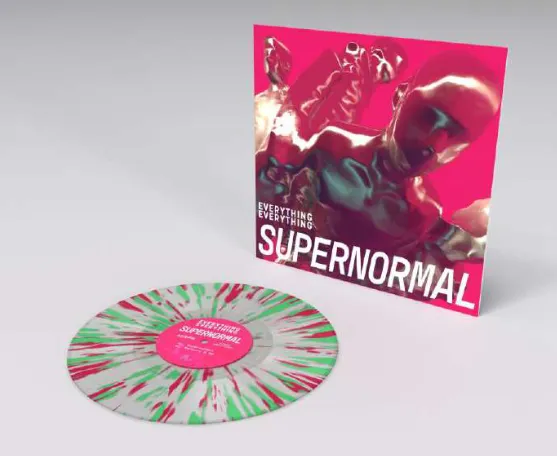
Everything Everything - Supernormal (Vinyl 10 - clear)
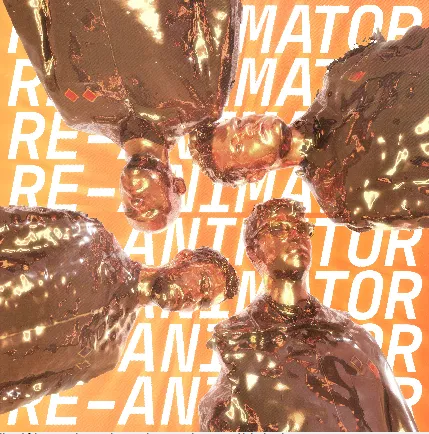
Everything Everything - Re-Animator (Vinyl LP - white)
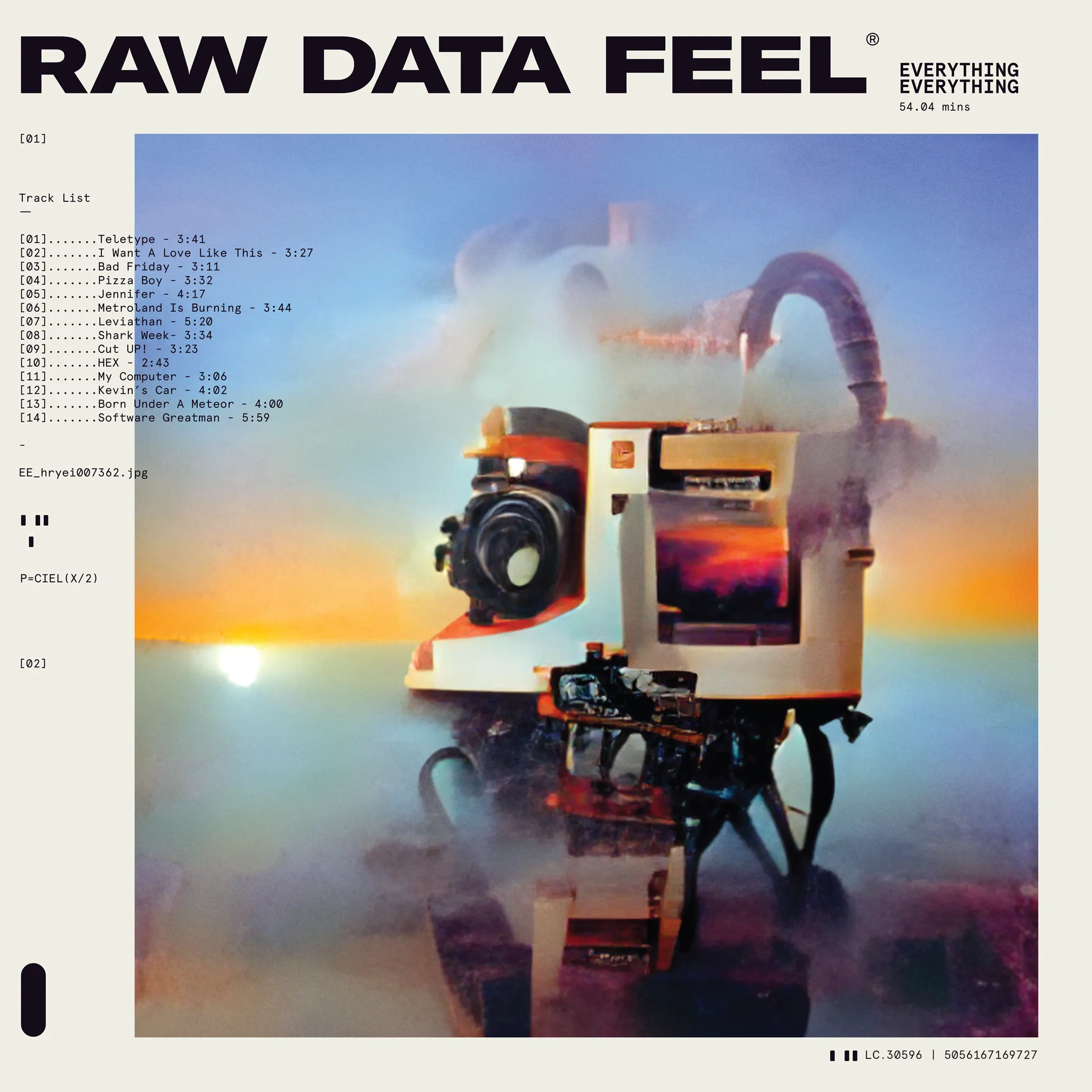
Everything Everything - Raw Data Feel (Vinyl LP - pink)
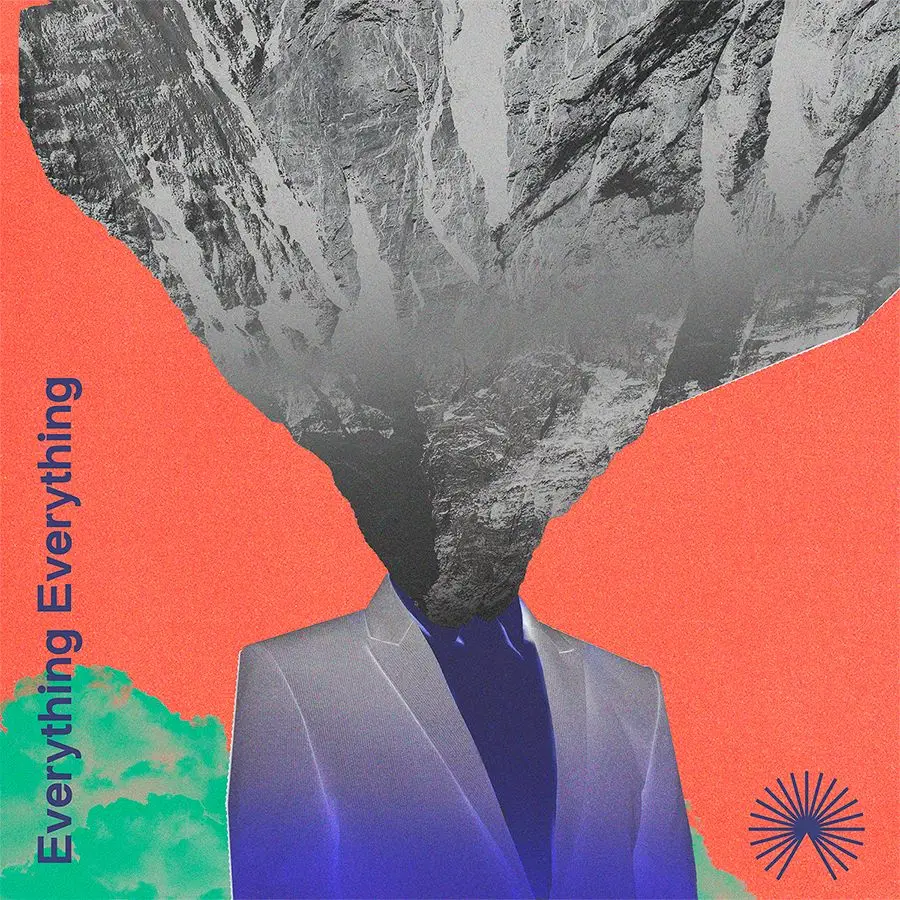
Everything Everything - Mountainhead (Vinyl LP - clear)

Everything Everything - Mountainhead (Vinyl LP - black)
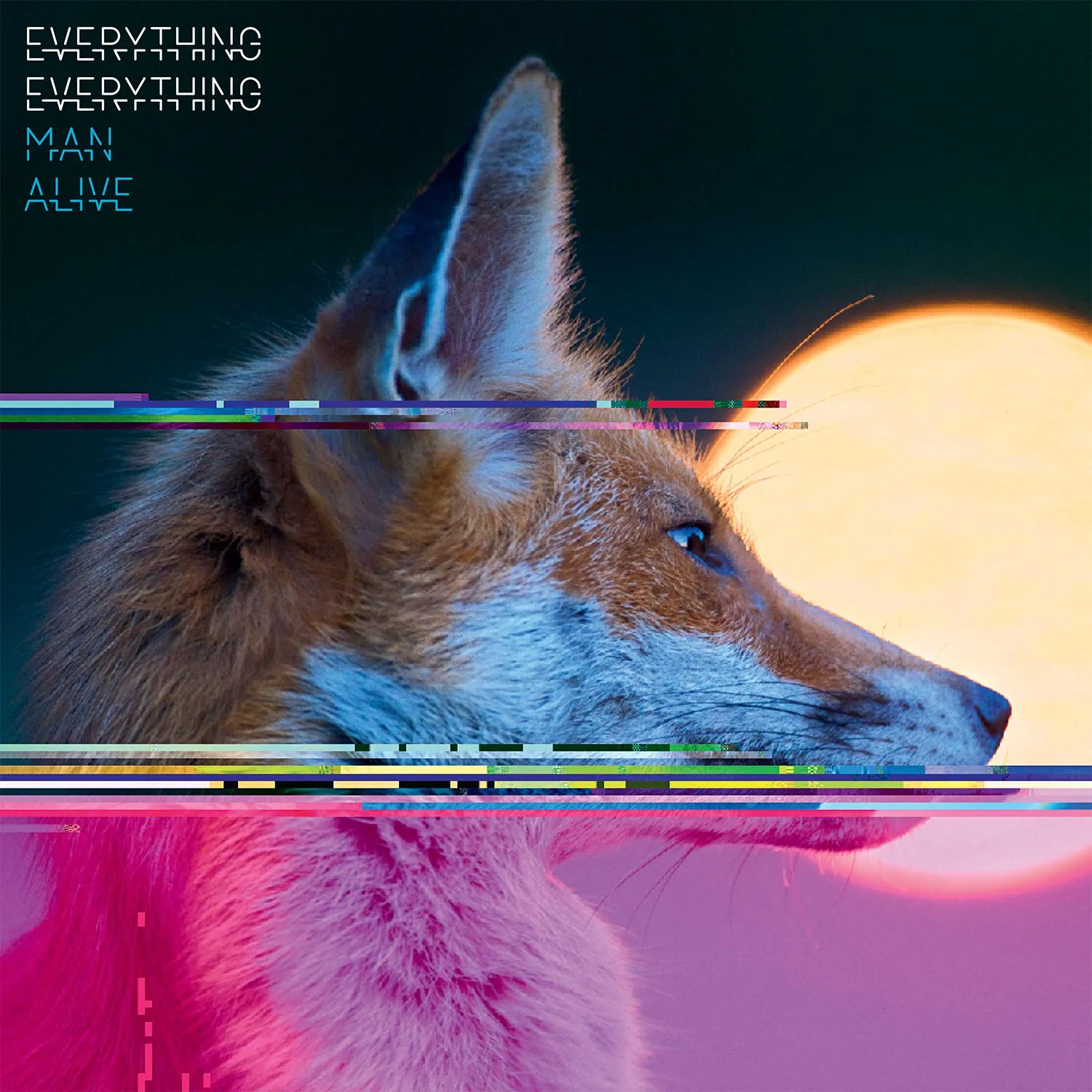
Everything Everything - Man Alive (Vinyl LP - black)
Read More
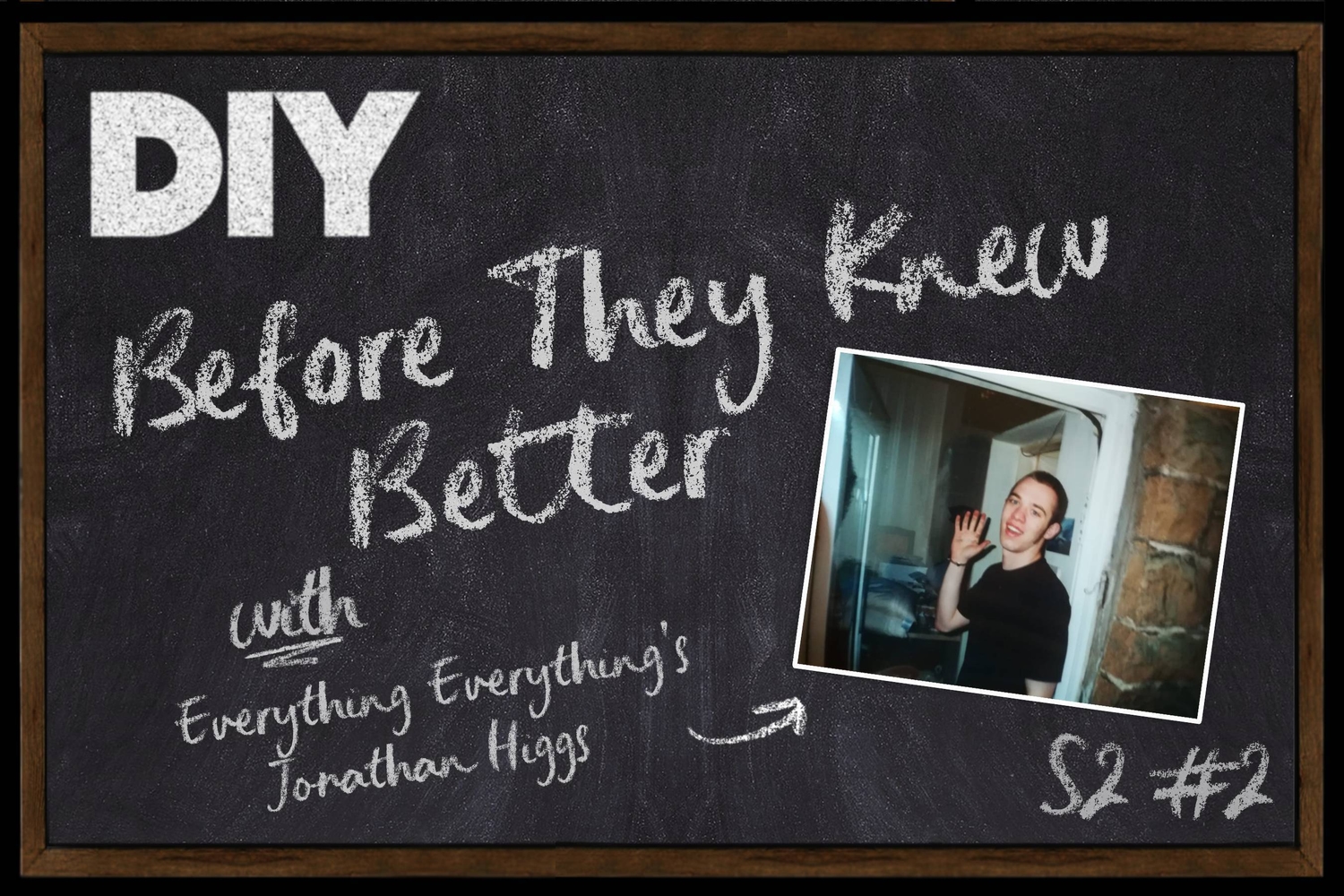
Listen back to Before They Knew Better live with Everything Everything’s Jonathan Higgs
For the next installment of our podcast's second series, we caught up with the indie stalwart live at The Social, London.
9th April 2024, 11:00am
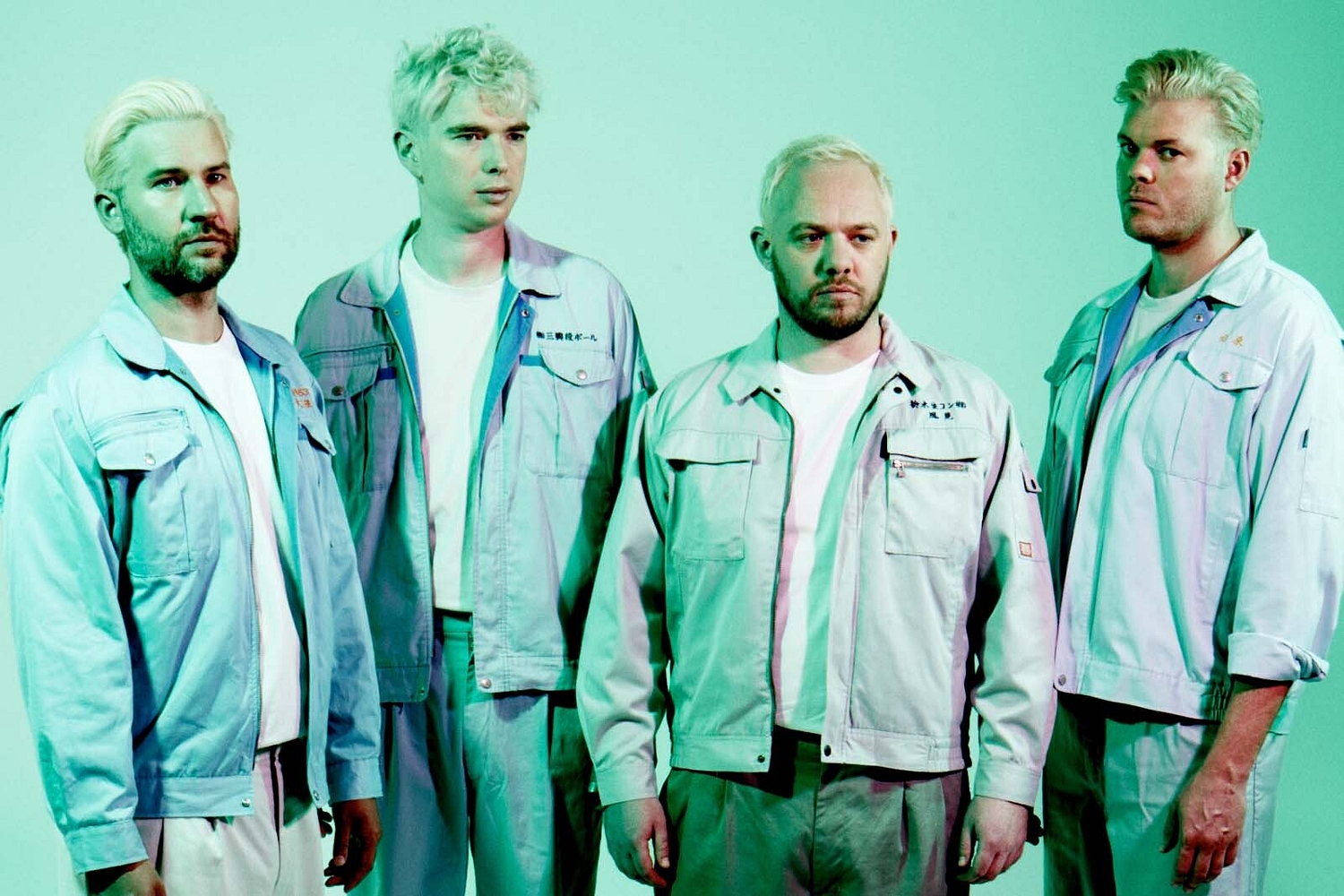
Everything Everything: Human/Kind
Over the course of six albums, Everything Everything have confirmed their position as art-rock’s premier futurists. However for their seventh trick, ‘Mountainhead’ sees the band retreating from the technological precipice and seeking (relative) simplicity.
7th March 2024, 4:00pm
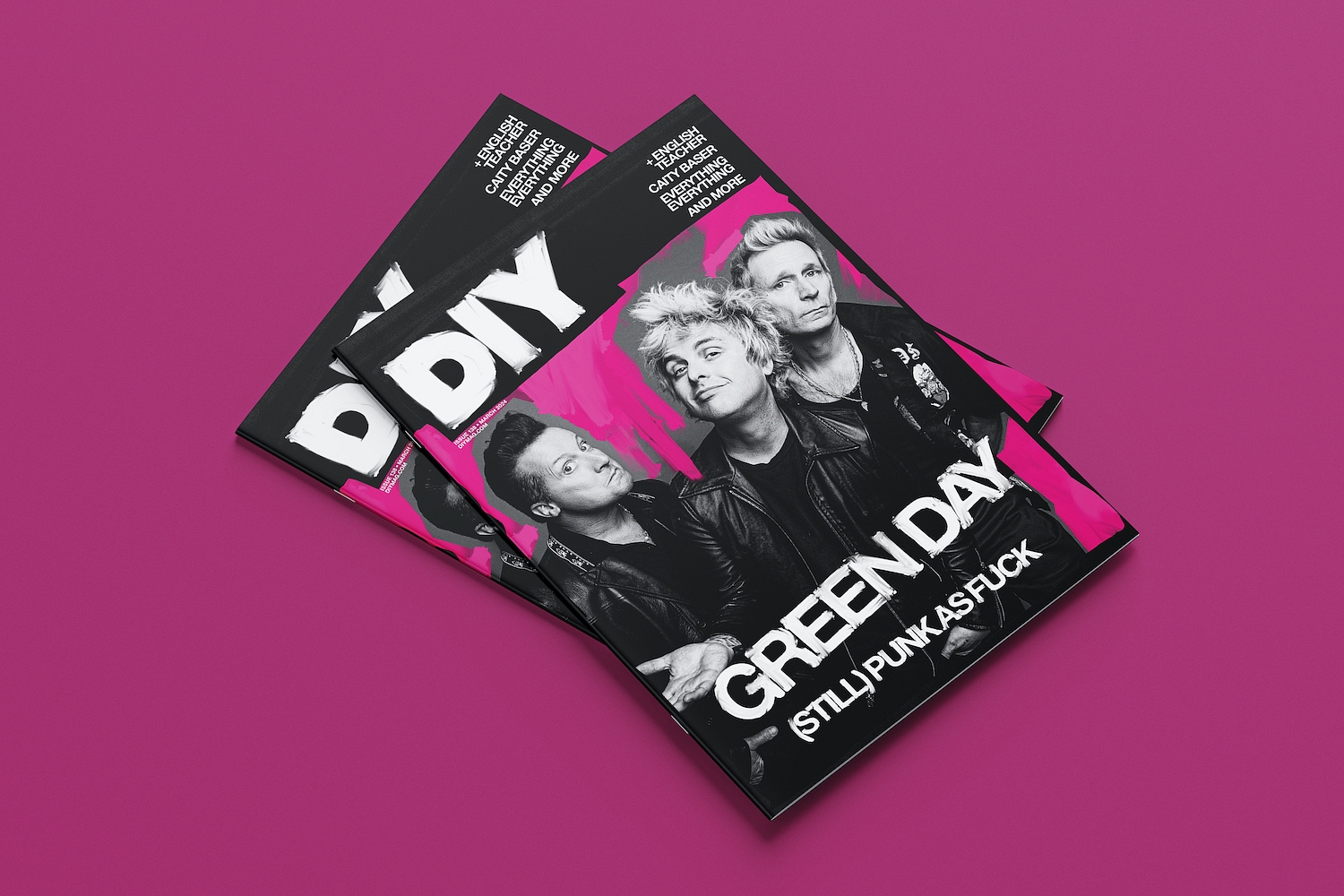
Green Day are the cover stars of DIY’s March 2024 issue!
This month's mag also features English Teacher, Caity Baser, Everything Everything and loads more.
1st March 2024, 3:00pm
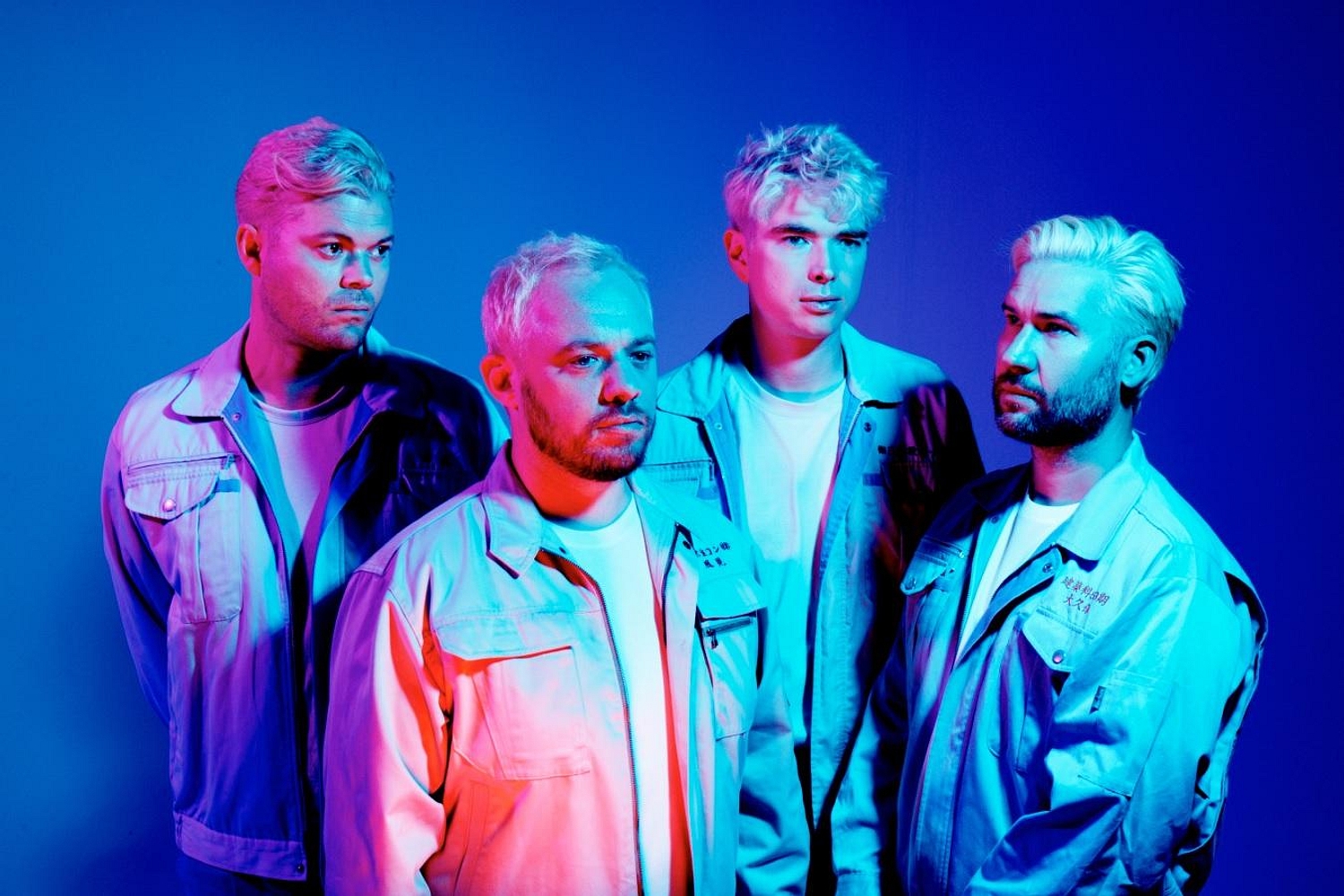
Everything Everything - Mountainhead
4 Stars
An album that continues the quartet’s knack for pairing potent socio-political commentary with delicious pop nous.
1st March 2024, 8:00am
With Bob Vylan, St Vincent, girl in red, Lizzy McAlpine and more.
